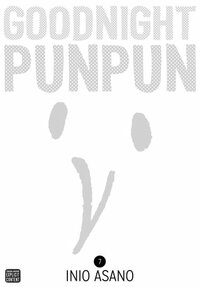Take a photo of a barcode or cover
I’m both really disappointed and really confused by the ending.
What a wild fucking ride! Definitely did not imagine that the book series would take the turns that it had, haha. I'm not sure if that helps it's case or hurts it.
I read every last page of this series thinking that at some point it had to redeem itself, but no. Terrible from beginning to end. The author’s books are all like this, so I should have known. But seriously, Asano San, get some therapy.
challenging
dark
reflective
fast-paced
Plot or Character Driven:
A mix
Strong character development:
Complicated
Loveable characters:
Complicated
Diverse cast of characters:
Complicated
Flaws of characters a main focus:
Yes
dark
emotional
mysterious
sad
medium-paced
Plot or Character Driven:
Character
Strong character development:
Complicated
Loveable characters:
Complicated
Diverse cast of characters:
Yes
Flaws of characters a main focus:
Yes
Using this as a series review
Inio Asano has such a cool style. The presentation is always amazing & every issue has some left field visual shit but it always works, stylistically.
I really like the early stories, & related heavily to punpun growing up. His constant anxiety & indecisiveness & then depression feel very very real. But I started to feel more & more disgusted with where his story was going as he grew up. It ebbs & flows, but watching him become more & more toxic was painful, especially getting into the Aiko stuff near the end. The other main cast feels even harder to sympathize with. The adults surrounding punpun all make bad decisions & keep justifying those decisions until they're given a chance to make an even worse one. There's pathos there, & you can see why they do some of the things they do, but the whole series just wallows in that sad, self-hating space for so long that it stops being surprising & starts being frustrating.
I gave this volume (& the series overall) a 4/5 because I think it ends on a decent note, but the penultimate story arc leaned on the worst aspects of the series in a way that was always engaging to read, but solidified a worldview that I thought the series otherwise had been trying to push against. In those chapters, it feels like the book is saying that the path for punpun to be happy, or at least well-adjusted, is by forming his conviction around the toxic behaviour he's seen in other people & hates in himself. He becomes a real person by pretending to be someone else, then by being abusive & controlling over Aiko in a similar way to how she had been abused & controlled by her mother. I felt the appeal of that fucked up relationship, for sure, but every decision being made was irresponsible & selfish & just fucking bad in a much more harmful way than wallowing in depression, locked up in a dirty room.
But then it ends, & he goes back to 'real life' & the moral of the story is that everyone is fucked up & even if you're more fucked up than normal, you just gotta find people to help you live with it. Which ties up the things that Goodnight Punpun was always about decently well enough, & even feels like ending on a happier note than I expected, but in doing so it kind of excuses the heinous shit the last few volumes reveled in.
Inio Asano has such a cool style. The presentation is always amazing & every issue has some left field visual shit but it always works, stylistically.
I really like the early stories, & related heavily to punpun growing up. His constant anxiety & indecisiveness & then depression feel very very real. But I started to feel more & more disgusted with where his story was going as he grew up. It ebbs & flows, but watching him become more & more toxic was painful, especially getting into the Aiko stuff near the end. The other main cast feels even harder to sympathize with. The adults surrounding punpun all make bad decisions & keep justifying those decisions until they're given a chance to make an even worse one. There's pathos there, & you can see why they do some of the things they do, but the whole series just wallows in that sad, self-hating space for so long that it stops being surprising & starts being frustrating.
I gave this volume (& the series overall) a 4/5 because I think it ends on a decent note, but the penultimate story arc leaned on the worst aspects of the series in a way that was always engaging to read, but solidified a worldview that I thought the series otherwise had been trying to push against. In those chapters, it feels like the book is saying that the path for punpun to be happy, or at least well-adjusted, is by forming his conviction around the toxic behaviour he's seen in other people & hates in himself. He becomes a real person by pretending to be someone else, then by being abusive & controlling over Aiko in a similar way to how she had been abused & controlled by her mother. I felt the appeal of that fucked up relationship, for sure, but every decision being made was irresponsible & selfish & just fucking bad in a much more harmful way than wallowing in depression, locked up in a dirty room.
But then it ends, & he goes back to 'real life' & the moral of the story is that everyone is fucked up & even if you're more fucked up than normal, you just gotta find people to help you live with it. Which ties up the things that Goodnight Punpun was always about decently well enough, & even feels like ending on a happier note than I expected, but in doing so it kind of excuses the heinous shit the last few volumes reveled in.
dark
emotional
sad
medium-paced
challenging
dark
informative
mysterious
reflective
sad
tense
slow-paced
Plot or Character Driven:
Character
Strong character development:
Complicated
Loveable characters:
Complicated
Diverse cast of characters:
No
Flaws of characters a main focus:
Yes
Graphic: Death, Mental illness, Physical abuse, Sexual violence, Suicide, Toxic relationship, Violence, Suicide attempt




